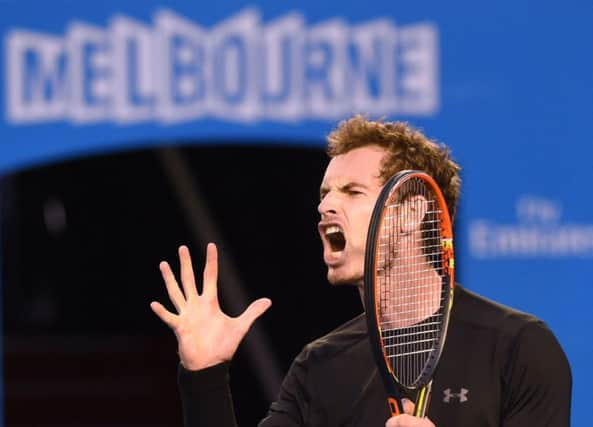Andy Murray needs to regain his mental strength


In bygone days they would have called it an act of Fate or the Gods. Nemesis, perhaps. And on days like yesterday, Andy Murray must feel as if Novak Djokovic had been put on this Earth purely to thwart his sporting ambition.
That’s three times the two have met in the Australian Open final, and three times the Serb has defeated the Scot. The 7-6, 6-7, 6-3, 6-0 victory was an eighth Grand Slam victory for Djokovic, and a sixth defeat in eight major finals for Murray. In terms of age the pair may only be separated by seven days, but the gulf in achievement is substantial.
Advertisement
Hide AdAdvertisement
Hide AdOf course, Murray will rightly resist any temptation to be fatalistic, because there was nothing preordained about this result. Instead, it came about because he could not press home his advantage when he took the lead in the match for the first time in the early stages of the third set, and because Djokovic has powers of recovery greater than anyone else in the sport.
Roger Federer and Rafael Nadal have more aesthetically pleasing games, and are easier to warm to. They seem more human – but part of the reason for that is they have a vulnerable side which Djokovic lacks.
Sometimes Federer the languid assassin becomes merely Federer the languid and is unable to rouse himself when behind. Sometimes Nadal’s purposeful dynamism deserts him, and his game, while still powerful, is bereft of the precision required to win tight contests.
Djokovic, on the other hand, is more machine-like. He maintains a metronomic rhythm for longer periods of a match than any other player. His powers of recovery are peerless.
He was rattled by Murray during those opening games in the third set, and at 2-0 down was facing a big swing against him. But within minutes the pendulum had changed direction again. The top seed’s hold of serve for 2-1 was far from his best game of the match, but it was enough to convince him the rot had stopped, and from there he lost only one more game in the rest of the contest, when Murray served to make it 3-3.
It was the following game, however, that was crucial. The Scot failed to convert a break point, and then was broken all too easily to go 5-3 down. Djokovic rounded off the set, and there was little resistance left from Murray after that.
Such are the narrow margins at this level. You can play excellently for 98 or 99 per cent of the time, but if you falter at crucial moments you’re done for. Murray played some exquisite stuff yesterday, but not for long enough. Not when it mattered most.
There was a spell in the match when Djokovic, who appeared to be nursing both a sprained thumb and a twisted ankle, looked to have the cares of the world on his shoulders. If so, he swiftly shrugged them off.
Advertisement
Hide AdAdvertisement
Hide AdBy contrast, when Murray went into a mental slump he was unable to get out of it. Of course, the quality of his opponent’s play had something to do with that, but the Scot nonetheless needs to address the reasons behind the drastic falling-off of quality in his game during a match that after two sets many expected to mature into a long-distance classic.
One possible contributory factor is his lack of recent matches at this high level. He has shown over the past fortnight that he has returned to the peak of physical fitness he enjoyed before his back surgery, and that has enabled him to get the better of previously tough opponents such as Grigor Dimitrov and Tomas Berdych. But regaining the mental stamina needed against a far wilier foe such as Djokovic may require longer. If that is the case, at least it means Murray knows what he has to work on in the coming months if he is first to be competitive at the French Open and then to become a genuine contender at Wimbledon and Flushing Meadows. And, once the immediate disappointment of this defeat has faded, he can look back on a start to 2015 that has been highly encouraging.
Two wins out of eight major finals would be looked on as an underachievement in many sports, but Murray has at least given himself realistic hope of improving on that record over the coming couple of years when his powers will be at their peak. And, while the Australian title may always prove elusive, we should not forget that in his two majors to date, at the US Open in the autumn of 2012 and Wimbledon the following summer, it was Djokovic he defeated in the final.